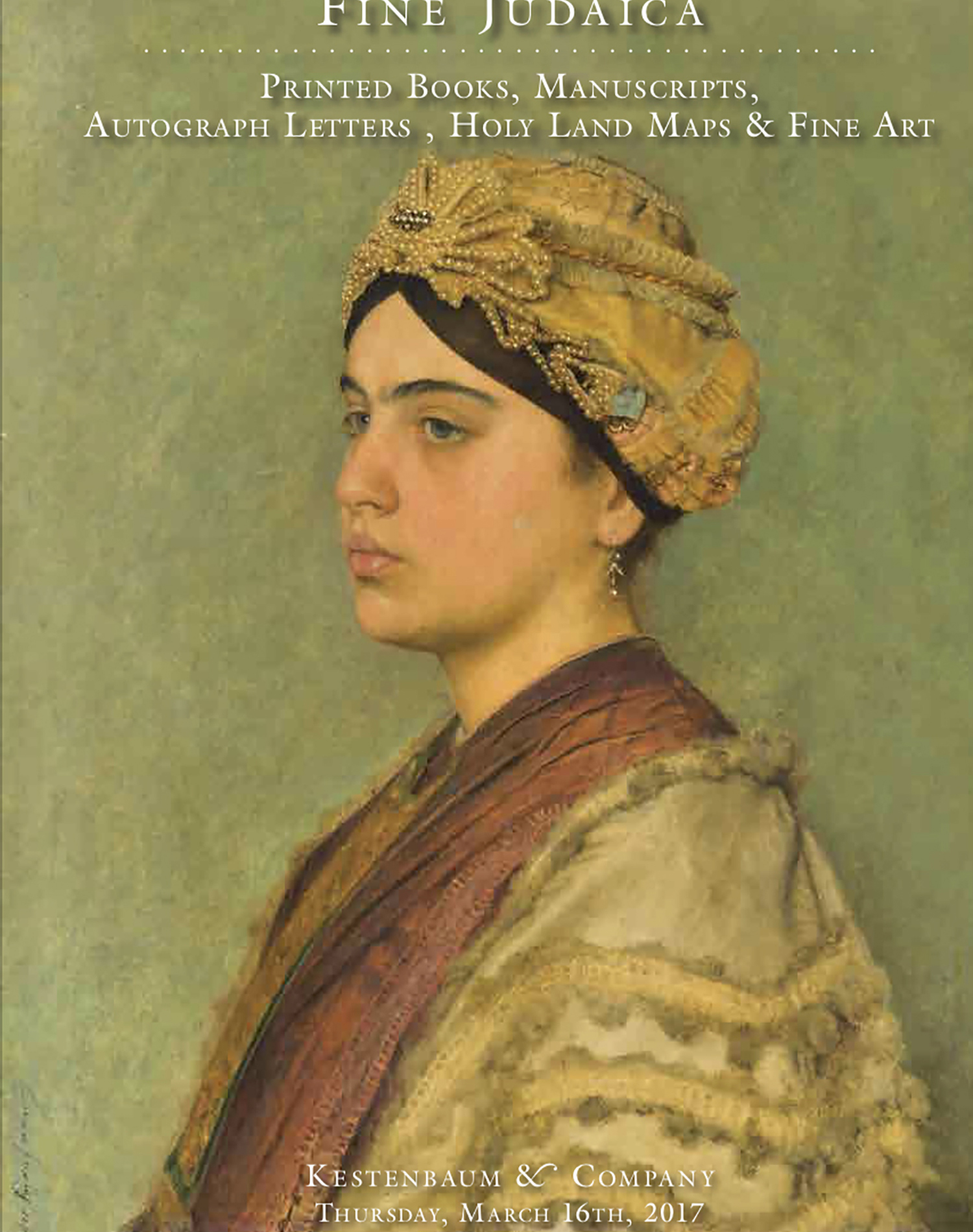Leeser, Isaac. Discourses on the Jewish Religion.

AUCTION 72 |
Thursday, March 16th,
2017 at 1:00
Fine Judaica: Printed Books, Manuscripts, Autograph Letters, Holy Land Maps & Fine Art
Lot 35
(AMERICAN JUDAICA).
Leeser, Isaac. Discourses on the Jewish Religion.
Philadelphia: Sherman & Co. 1866-67
Est: $10,000 - $15,000
<<Collected Sermons of the Pioneer of American Orthodoxy, Isaac Leeser. A rare complete set.>>
Central to Isaac Leeser’s career as a pioneering American rabbi was his role as a preacher. He delivered more than two hundred fifty sermons over his lifetime. Some were published in pamphlet form or in his monthly publication The Occident. In 1837 he issued Discourses… First Series, a two-volume anthology of fifty-two sermons. The first anthology of sermons by an American Jew, Discourses was eagerly anticipated by communities across the United States and the Caribbean; it was also reviewed favorably in Europe. Leeser’s Discourses marked a coming of age of the American synagogue and rabbinate. From then on, the sermon increasingly became accepted as a central feature of the synagogue service; eloquence and oratory skills became important qualifications for any rabbi seeking an American pulpit.
Leeser issued an additional volume of Discourses… Second Series in 1841. By this time, however, he had been propelled to national leadership of the American Jewish community and his many communal and literary responsibilities no doubt kept him from publishing further volumes for more than two decades. It was not until the final year of his life that he began to edit a third series of sermons for publication. Ignoring the sufferings of illness, he prepared six volumes before finally succumbing to cancer. A seventh volume was edited posthumously by his colleague, Judge Mayer Sulzberger. The seven volumes of the third series were issued in a ten volume edition (the present lot) that included a reprint of the first two series.
Leeser initially delivered sermons for the edification and inspiration of his contemporary co-religionists. But his decision to print the ten-volume anthology was motivated primarily by the recognition that it would serve as his lasting legacy for the “new generation that has spring up… I hope that the heart of the vast majority of Israelites will still respond to the instructions laid before them now, as was the case three decennia ago, when I was perhaps the only Jewish public speaker in America” (Vol. I, p. vii). (He was also driven by the fear that “when the grave encloses my mortal remains, some one might be induced to edit my writings … and to make me say what I would not sanction.”)
Leeser was interested in leaving American Jews with a “religious legacy” in the form of his Discourses. In a literary review in the Occident (Vol. XXVI, pp. 237-8), Sulzberger highlighted the larger implications of the publication of the monumental work: “Irrespective of the merits, which the most casual reader will recognize, the book contains much historical information, respecting American Jews; and indeed will be one of the main sources for a history of Judaism in our country… Every Jew who is interested in the events that have befallen his co-religionists here, during the last forty years… will be glad to possess the work.”
On Leeser as a preacher and his Discourses, see Lance Sussman, Isaac Leeser and the Making of American Judaism, pp. 66, 60-67, 77, 87-88, 120-121, 241.
